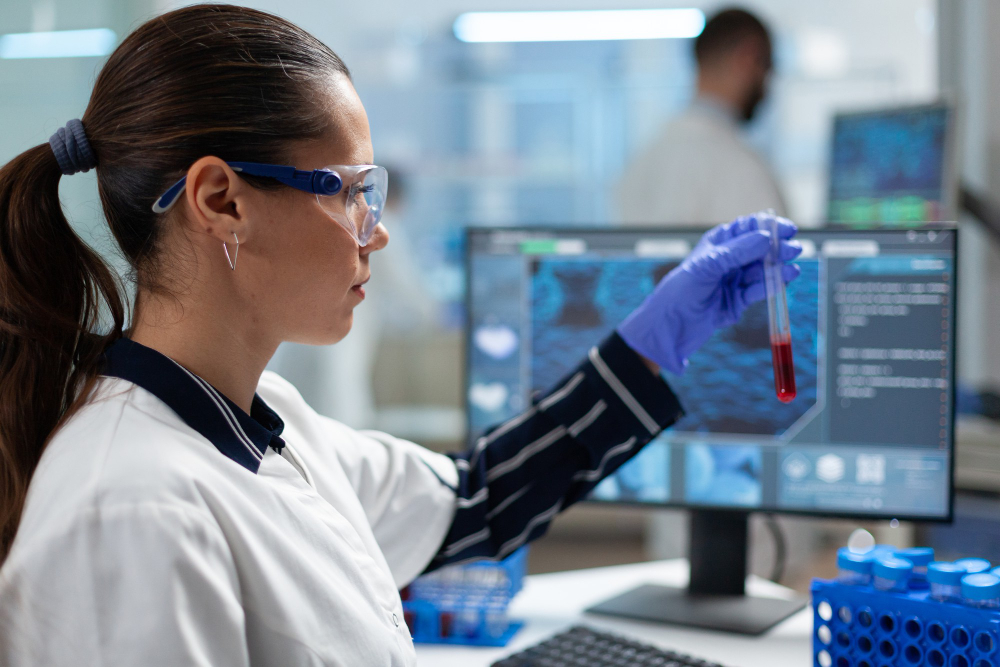Trending

Biomedical Sciences Degree Course Guide
Ratings
(0)
Biomedical Sciences is the study of how the human body works at a cellular and molecular level, and what goes wrong in disease.
It forms the scientific foundation of medicine and healthcare and helps drive advances in diagnosis, treatment and prevention. If you're interested in biology, human health and medical research, and you enjoy working in a lab, this degree could be a perfect fit.
What Is Biomedical Sciences Like at University?
Biomedical Sciences is a laboratory-focused course that explores the science behind health and disease. You’ll study the structure and function of the human body, from cells and DNA to organs and systems. You’ll investigate how illnesses like cancer, diabetes and infections develop and how they are detected and treated. The course is designed to give you a broad understanding of medical science with opportunities to specialise in later years. You’ll gain practical experience in lab techniques, research skills and data analysis, and many universities offer final-year projects in real research labs.
How Long Does It Take and What Are the Options?
In the UK, Biomedical Sciences is usually a three-year BSc or a four-year MSci if you choose an integrated master’s. Some universities offer a placement year in industry, a hospital or a research lab. Biomedical Sciences can also be taken as a broader degree in medical or biological sciences with options to focus on areas like genetics, neuroscience or immunology. This degree is sometimes a stepping stone to postgraduate medicine or dentistry, especially for students who apply to graduate entry programmes.
How Will You Be Taught and Assessed?
You’ll be taught through lectures, tutorials, practical lab sessions and group work. Assessment is typically a mix of exams, coursework, lab reports, presentations and research projects. In your final year, you’ll usually carry out a supervised research project, where you design experiments, collect data and report findings.
What A Levels or Subjects Do You Need?
Most universities require:
Biology — essential
Chemistry — usually required or strongly preferred
Maths or a second science — often accepted as a third subject
You’ll also need strong GCSEs, especially in Maths, English and Science. Some universities are flexible if you have relevant qualifications or strong science combinations. Work experience in a lab, hospital or healthcare setting can support your application and demonstrate interest.
What Skills Will You Develop?
A Biomedical Sciences degree will equip you with valuable scientific and transferable skills including:
In-depth knowledge of human biology, physiology and disease
Lab techniques in microbiology, cell culture, molecular biology and genetics
Analytical thinking and experimental design
Use of statistics and scientific software
Scientific writing and data presentation
Problem-solving and critical thinking
Collaboration, communication and research skills
These skills are useful in healthcare, science, education and business.
What Can You Do With a Biomedical Sciences Degree?
Biomedical Sciences opens up a wide range of career options. Many graduates work in science, healthcare or research, including roles such as:
Biomedical scientist (with NHS registration)
Research scientist in universities, pharmaceutical companies or biotech
Clinical trials coordinator or medical lab assistant
Public health or healthcare analyst
Science communicator or medical writer
Regulatory affairs or quality control
Health policy, education or outreach roles
Some graduates go on to further study in medicine, dentistry, physiotherapy, public health, or complete a master’s or PhD in specialist areas such as immunology, cancer biology or neuroscience.
Studying Biomedical Sciences Abroad
Biomedical Sciences is widely taught around the world, especially in countries with strong medical and research sectors. Here’s what to expect in different regions:
USA
In the US, Biomedical Sciences is usually studied as a four-year Bachelor of Science degree. It often serves as preparation for medical school or graduate study. You’ll study core science courses and choose electives in areas like genetics, pharmacology or microbiology. Universities like Johns Hopkins, UC San Diego and the University of Michigan offer strong biomedical research environments. Graduates often continue into research, medicine or public health.
Canada
Canadian universities such as McMaster, UBC and the University of Toronto offer excellent Biomedical Sciences degrees. Programmes are often four years long and include hands-on research, co-op placements and optional honours research years. Canadian degrees are recognised worldwide and are well suited to careers in science, medicine or health tech.
European Union
In the EU, Biomedical Sciences or Medical Sciences degrees are widely available in English, particularly in the Netherlands, Sweden, Finland and Germany. Degrees typically last three years and may be followed by a two-year research master’s. Dutch universities such as Maastricht and Groningen are especially popular with international students. EU programmes often combine theory with early research opportunities.
Australia
In Australia, you can study Biomedical Science as a three-year bachelor’s degree with options to specialise or pursue honours in a fourth year. Universities like the University of Melbourne, Monash and the University of Sydney offer strong research-led courses. Graduates may enter the workforce or continue to postgraduate medicine, research or healthcare roles.
New Zealand
New Zealand universities such as the University of Otago and the University of Auckland offer Biomedical Science degrees with small class sizes and strong student support. The courses provide a solid grounding in biology and human health and are ideal for progressing to health science careers or research.
Studying abroad offers exposure to different healthcare systems and research environments. Be sure to check how international degrees align with your career plans, especially if you’re considering graduate medicine or clinical lab roles in the UK.
Is Biomedical Sciences the Right Course for You?
Biomedical Sciences is ideal for students who love science and want to understand how the human body works and how diseases develop. It suits people who are curious, detail-focused and enjoy solving problems in a lab environment. If you’re interested in medical research, healthcare innovation or progressing to further study in science or medicine, a degree in Biomedical Sciences provides a strong, flexible foundation.




